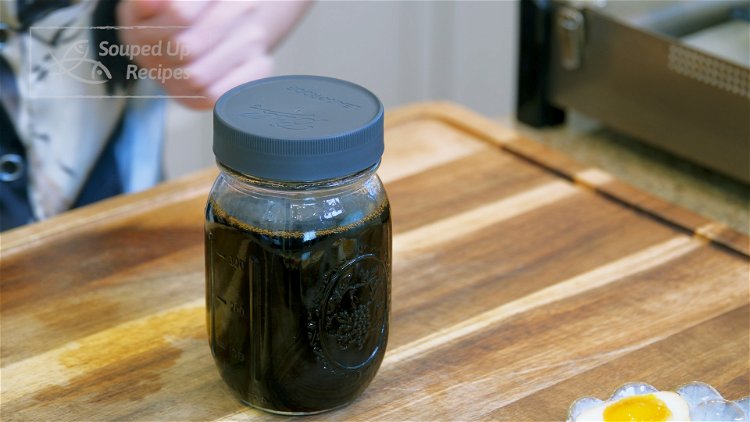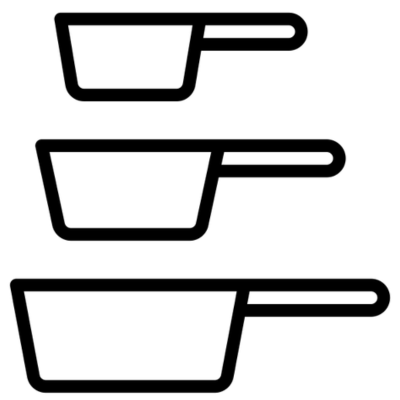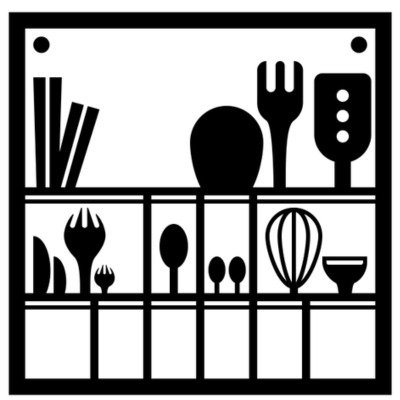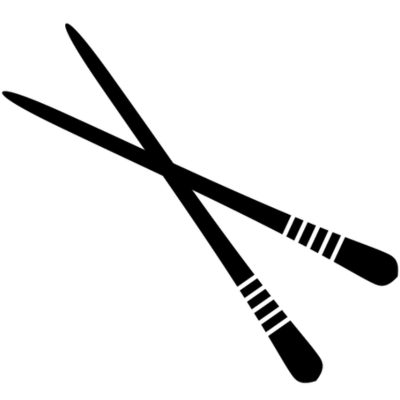Authentic Chinese Tea Egg Recipe (With Methods to Reuse the Brine)
Rated 5.0 stars by 1 users
Author:
Souped Up Recipes
Servings
4
Prep Time
5 minutes
Cook Time
10 minutes
Tea egg is a popular breakfast item in China. Using my method, you can cook the eggs to whatever doneness you like and still make it flavorful with that beautiful marble pattern. You gonna love them because they are flavorful, tender, and delicious. At the end, I will show you how to keep and reuse the tea brine because we don’t want to waste such a flavorful liquid.
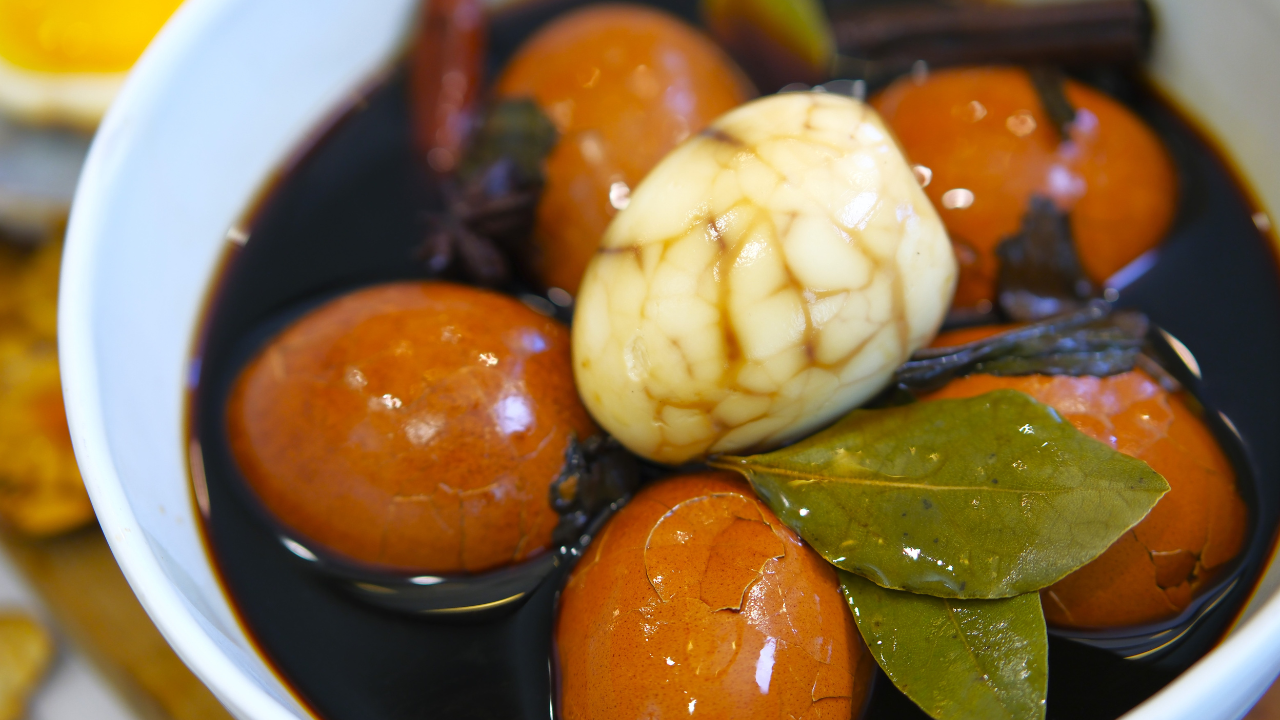
Ingredients
- 8-10 eggs
- 2 star anise
- 4 bay leaves
- 2 tsps Sichuan peppercorn
- 1 cinnamon stick
- 3 cloves garlic, crushed
- 2 dried red chilies, optional
- 6 Tbsps soy sauce
- 2.5 Tbsps dark soy sauce
- 1 Tbsp brown sugar
- 1 tsp salt
- 2 Tbsp black tea leaves or 5 tea bags
- 2.5 cups water
Directions
Take the eggs out of the fridge and leave them on the countertop for 30 minutes to get room temperature.
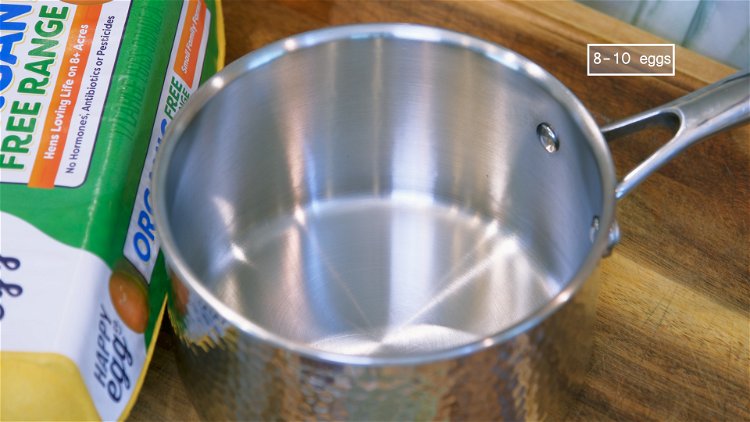
- Please choose an appropriate-sized pot that fits all the eggs in one layer without leaving empty space. Otherwise, you have to add more water in order to immerse everything.
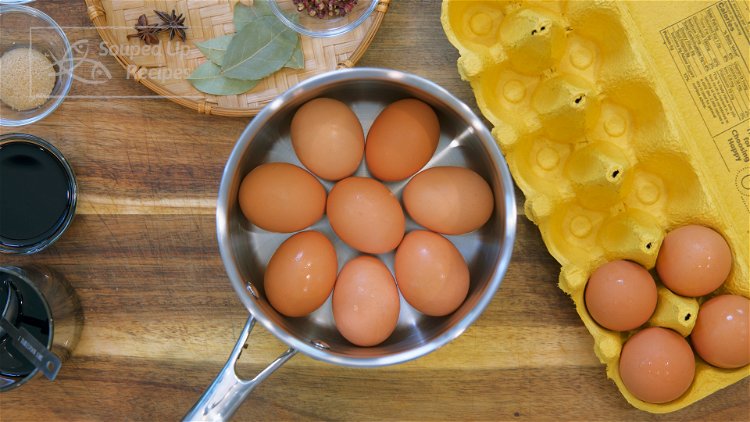
- Add the eggs, star anise, bay leaves, Sichuan peppercorns, cinnamon stick, dried red chilies (optional), garlic cloves, soy sauce, dark soy sauce, brown sugar, salt, black tea, and water into the pot. Ulong tea will also work.
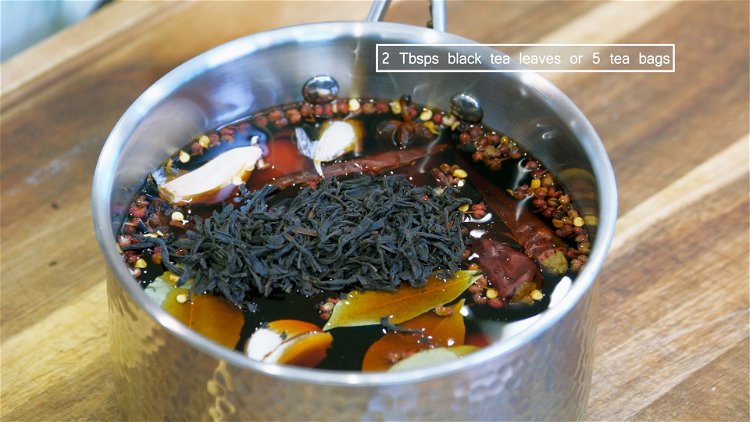
- Turn the heat to medium and bring everything to a boil. Please don’t go away because you need to start counting the time as soon as the pot comes to a boil. If you miss the moment, you will lose track of the doneness.
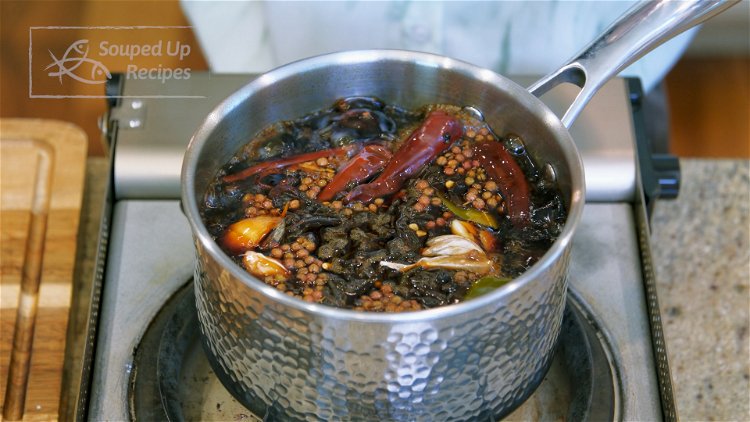
- Boil the eggs for 4 minutes if you want the yolk to be running; boil for 7 minutes for medium-soft eggs; boil for 10 minutes for hard-boiled eggs. The traditional Chinese tea eggs are boiled for at least 40 minutes. Why? Back in the time when there was no refrigerator, street sellers had to keep the pot simmering the whole day to prevent the eggs from going bad. The result of that is a super flavorful yummy egg white and a crumbly, powdery, overcooked yolk. Well, it is your choice to decide how long you want to cook your eggs.
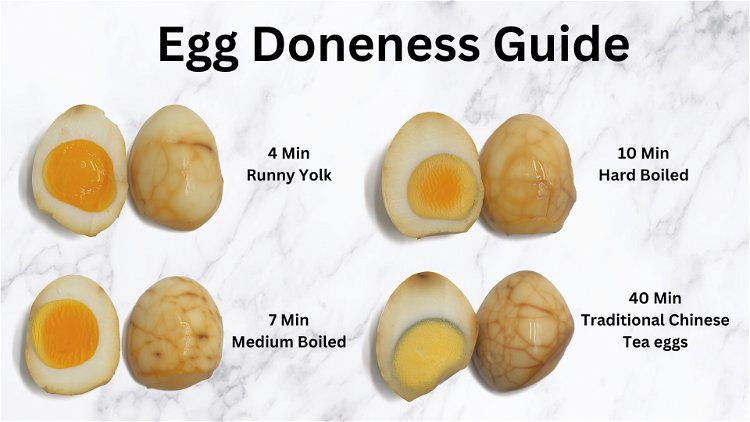
- During the boiling, lightly tap each egg with 2 spoons to break the shells. This is an important step for the flavor to infuse deeply. Please be careful; the eggs are not fully cooked yet. If you tap too hard, you may smash them.
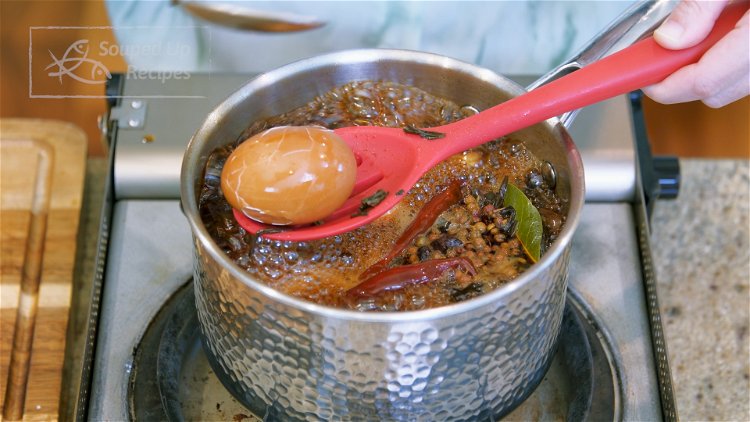
- Once done, transfer the eggs into an ice bath for 2 to 3 minutes to stop the cooking process. If you are making the old traditional tea eggs, there is no need to put them in the ice bath as it is already cooked for 40 minutes.
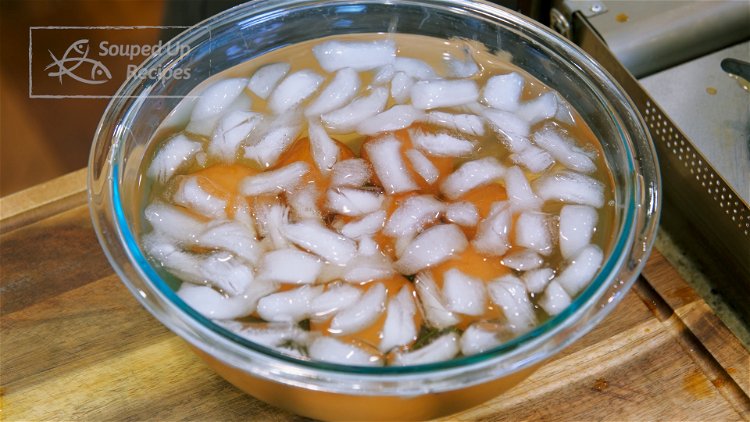
- If you are making the running yolk tea eggs, you also need to cool the tea brine. Just place the pot into the ice water and swirl it around. The liquid should cool within 3 minutes because the stainless steel has a really good thermal conductivity. You can feel the temperature with your hand. It doesn’t need to be super cold. Lukewarm is fine.
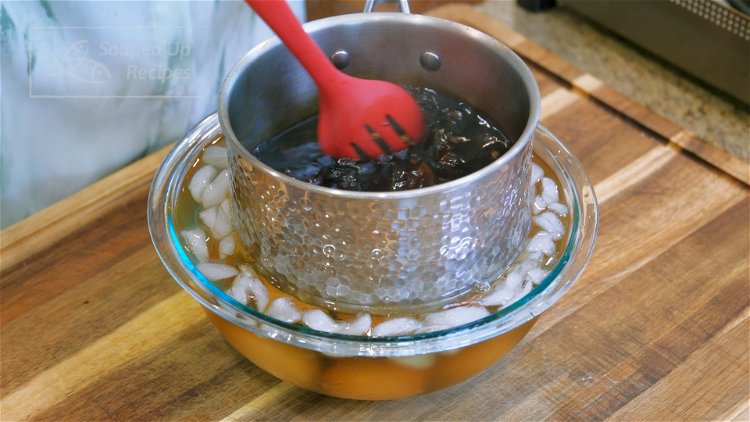
- Pour the tea brine into a nonreactive container. Take the eggs out of the ice water and soak them in the tea brine. Make sure everything is well-immersed. Leave them in the fridge for at least 24 hours before eating.
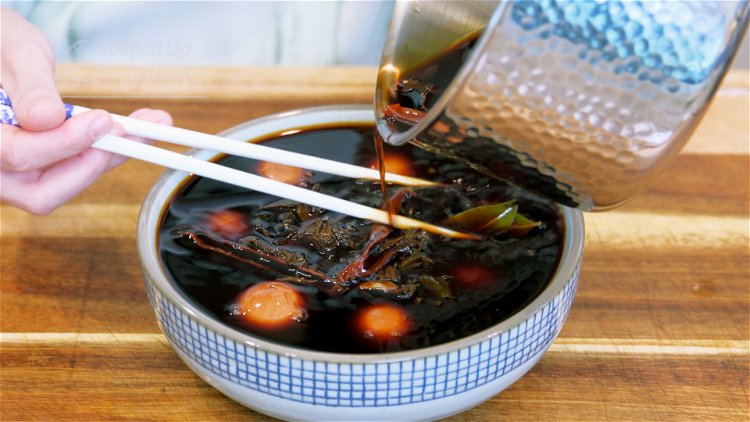
- These eggs can stay good for up to 5 days refrigerated. Just be aware that they will become more flavorful and saltier over time. During the soaking, the marinade will steep through the cracks and create that beautiful marble patterns. These eggs can be enjoyed cold and room temperature. You can reheat them, but the yolk texture may change.
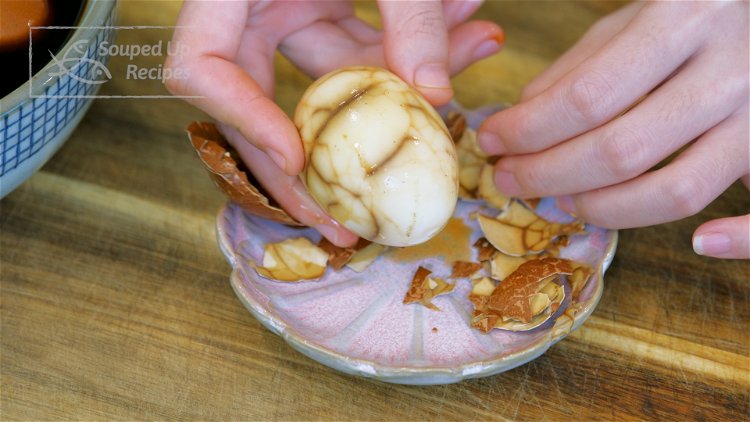
- I made my eggs in a few different donenesses. With 4 minutes of boiling, you will get runny yolk eggs. After 7 minutes, the yolk is almost set but the center is sticky. If simmering for 10 minutes, both the white and the yolk are fully cooked, but the texture is not rubbery or dry. If you cook the eggs for 40 minutes, the egg white becomes very dark, firm and dense, the yolk is dry and crumbly.
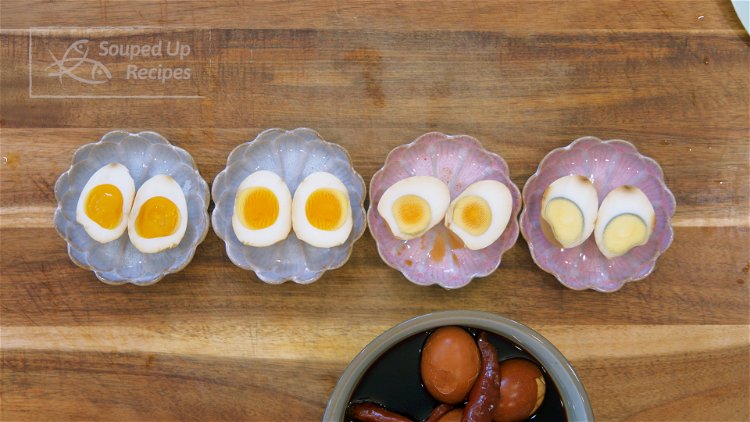
How to save and reuse the tea brine?
- Once you finish eating all the eggs, sieve out all the spices and bring the brine to a full boil. Store it in a sealed jar. This brine can stay good in the freezer for up to 4 months. Next time, when you want to eat Chinese tea eggs again, you can boil the eggs in this brine directly. However, you will have to add a little more spices, tea leaves, seasonings, and water because we have no idea how much flavor has infused into the eggs and how much water has evaporated. So everything is by taste. You just go with your feeling.
